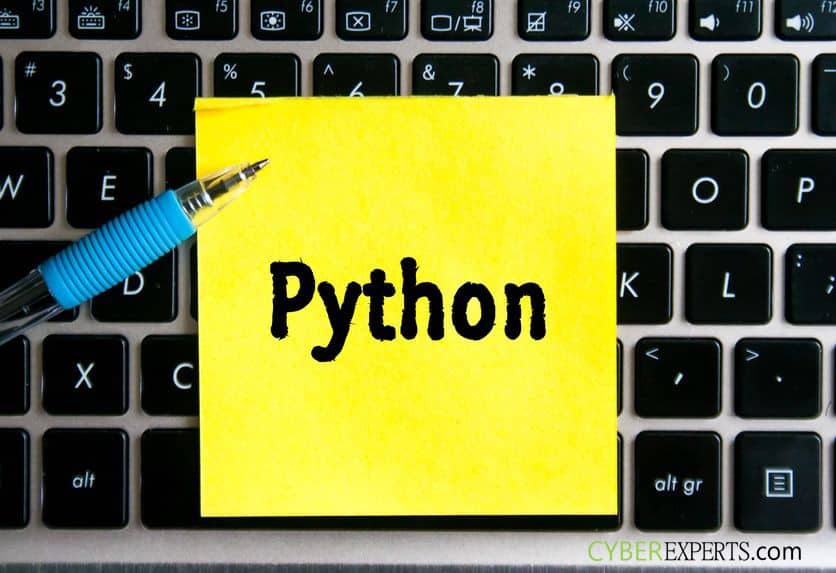What are the best cybersecurity Programming Languages? Although a shortage of cybersecurity skills and talent has contributed to the rising cybercrime cases, developing insecure applications and systems is also to blame. DevSecOps is a prerequisite for developing secure and resilient applications. The concept means development, security, and operations, and it involves observing the recommended practices to ensure a secure development environment to provide end-users with trusted and safe products. Cyber actors can, however, still work around and compromise systems with the highest security levels.
To prevent this, cybersecurity professionals need to possess diverse skills to detect security issues in a system and deploy sufficient mitigations. For this reason, having a strong programming background is important in the cybersecurity profession today.
Importance of Programming to Cybersecurity
Henrique, a Brazil-based Python expert, and trainer stresses that “besides keeping abreast with the latest happenings in the cybersecurity field, you also need to be acquainted with various programming languages.”
Jason Robert, a navy veteran with multiple cybersecurity certifications, also adds that security personnel should “determine the best programming language for cybersecurity, your particular corner of the quicky expanding cybersecurity world, and get familiar with the basics.”
Unquestionably, programming knowledge enables cybersecurity experts to analyze software to uncover security flaws and vulnerabilities, determine malicious programs, and perform tasks requiring cybersecurity analytical skills. However, the programming language choice depends on the desired skills, which can be in computer forensics, web application security, network security, malware analysis, and software security. In any case, a programming background provides cybersecurity professionals with a higher competitive edge over other professionals lacking the skills.
Other than that, the main reason it is necessary to learn to program is to gain the high-level skills required in an ideal cybersecurity expert. A competent cybersecurity professional must demonstrate unrivaled knowledge in virtualization software, networking, operating systems, system administration, system architectures, and other vital components that form an IT system. Understanding system architecture comprehensively permits cybersecurity professionals to see the bigger picture. They can pinpoint vulnerabilities accurately and provide appropriate recommendations on securing all access points to prevent breaches and attacks.
Cybersecurity professionals need to fully understand firewall management and configuration, network switches and routers, network architectures, and network load balancers. Virtualization and network technologies provide business operations with unmatched benefits, but the technologies must contain sufficient security. With cloud computing taking center stage of most business processes, cybersecurity teams must understand web browsers’ development and protection and other web-based applications. They provide the interface for accessing cloud services. Ultimately, advanced programming knowledge is crucial for cybersecurity specialists to provide adequate security.
Not all cybersecurity jobs require applicants to possess a programming background. For most entry-level positions, individuals do not require high-level programming knowledge. It is, however, a requirement for intermediate and expert professionals. An understanding of programming languages allows cybersecurity experts to remain ahead of malicious hackers. Having an intimate knowledge of a system architecture means it is possible to exploit it. As Jason Robert highlights, “not all cybersecurity professionals have, or need, coding skills. But without some knowledge or at least one language, you may find your path forward somewhat limited.”
More importantly, programming languages play an essential role in the development of secure applications and systems. In the recent past, most companies have shifted to Agile and DevOps methodologies to integrate business operations with their IT side. As Scott Prugh, the Chief Architect and Vice President of Software Development Operations for SSG International, states, “the goal is to put more effective working relationships in place to improve the flow of work, as well as the quality and speed of that work.”
Developers should concentrate more on ensuring a new web-based app or software has sufficient security processes during development. Inadequate security provides hackers with easily penetrable systems risking the loss and compromise of vital data. While most modern enterprises implement robust monitoring software and secured servers for information storage, they are still incapable of entirely keeping cyber adversaries at bay. As a result, developers have more substantial responsibility for ensuring the security of all products under development. The need for sturdy security highlights why it is so crucial to possess programming knowledge.
Best methods for learning code for beginners
Programming is not a required skill that can deny beginners an opportunity to venture into the cybersecurity profession. But since it is a crucial requirement for advancing to intermediate and expert positions, it is prudent for anyone considering a cybersecurity career to learn to code. A straightforward approach consists of two steps – developing a programming awareness and developing a programming proficiency.
1. Developing a programming awareness
It is important to note that the job requirements of an entry-level cybersecurity job are more general. Therefore, to develop programming awareness, beginners should consider using a technical position as a quick and easy way to gain hands-on skills and experience.
The beginning of a cybersecurity career is usually the best time to build on programming awareness to gain proven experience and skills. This strategy entails identifying the programming code, understanding the fundamental programming components and constructs, and reading code to decipher its purpose. A structured practice, which involves creating code as introduced in new programming concepts, is the best way to develop and build programming awareness.
2. Developing proficiency in programming
Programming proficiency does not necessarily mean being a fully qualified coding expert in a specific programming language. Instead, it can develop a unique code by utilizing the available resources and troubleshooting code created by other programmers. For example, a cybersecurity analyst who can create a script for automating repetitive tasks using the python language can be considered proficient in coding.
Developing a programming proficiency is similar to creating awareness. The difference is the need for advanced programming courses, either online or in a college, but focusing on applying the programming concepts to develop a secure solution.
What are the best cybersecurity programming languages?

1. Python – one of the best cybersecurity programming languages
Python has been a common language in cybersecurity for many years now. Indeed, it is one of the best cybersecurity programming languages to know. It is a server-side scripting language; hence coders do not require to compile the created script. It is also a general-purpose language and, therefore, used in thousands of cybersecurity projects.
Most security developers use Python to develop cybersecurity tools since it is easy to read and use. It has numerous white spaces that make it easy to learn for beginners. Python has become a popular choice over the years, not only for cybersecurity experts but also for data science professionals. Large companies, such as NASA, Google, and Reddit, use it for various development projects. The factors contributing to the popularity include an extensive set of libraries, a simple and clear syntax, and simple code readability.
As a writer on Medium states, “it doesn’t come as a surprise that Python is one of the most sought-after programming languages for cybersecurity considering its extensive library of powerful packages that supports Rapid Application Development (RAD), clean syntax code and modular design, and automatic memory management and dynamic typing capability.”
Cybersecurity professionals can use their knowledge in Python programming language to scan wireless networks by sending TCP packets without depending on other third-party tools, developing and simulating attacks, creating systems for detecting malware, and creating an intrusion detection system. Also, Python is a popular cybersecurity language since its features have high compatibility with scientific applications and the methods used for data analysis. Therefore, it is suitable for data analysis, desktop applications, and back-end web development, all of which are vital concepts in enhancing cybersecurity.

2. JavaScript
Very few people can attest to liking JavaScript, yet it is among the most used programming languages today. Currently, virtually all major browsers support it, and almost all web developers use it daily. JavaScript is among the most popular programming languages used for web development. Failing to understand JavaScript language can harm a cybersecurity professional’s ability to carry out tasks such as pen-testing web-based systems and applications and bug bounty hunting.
Besides, cross-site scripting attacks, which is one of the most common security flaws in web applications, are based on JavaScript. Cross-site scripting is where hackers identify an input flaw on a target website and use JavaScript to create scripts for taking over the website’s control functions. According to Jason Robert, JavaScipt is “one of the best cybersecurity programming languages you can learn. If you want to steal cookies, manipulate event handlers, and perform cross-site scripting, JavaScript is for you.”
Therefore, to ensure a website contains adequate security and mitigate and prevent cross-site scripting attacks, a cybersecurity professional must have a strong JavaScript background. Other JavaScript use cases for a cybersecurity expert include manipulating event handlers and working with cookies.

3. Structured Query Language (SQL)
Due to the high rates of technological adoptions, numerous enterprises have become data-driven. They must collect and process various data types to provide products and services, identify new market segments, and compete effectively with rival competitors.
Effectively, enterprises use databases to manage the collection and storage of business data. Developers use the Structured Query Language (SQL) programming language to create most database management systems, and it is one of the most sought programming languages in database management. At the same time, most attacks are data-driven since hackers often compromise networks and protected systems to access sensitive information.
Subsequently, understanding the SQL programming language can help cybersecurity professionals strengthen databases’ security of housing confidential information. For instance, malicious actors use SQL injection attacks to inject databases. An SQL injection involves identifying an SQL flaw and exploiting it to locate credentials belonging to various users for accessing a database. A hacker uses SQL to gain unauthorized access and output the information stored in a database. A cybercriminal also deploys SQL injection to add new information or modify data in a database server, thus compromising its integrity and confidentiality. To prevent and identify vulnerabilities in a database, a cybersecurity professional must possess significant knowledge of the SQL programming language.

4. PHP
Enterprises and individuals often use the PHP programming language for website development. As such, it is a good fit for cybersecurity professionals whose job descriptions involve protecting and securing websites. Additionally, PHP has increased in popularity in recent years as one of the essential languages developers need to learn. Understanding the language equips strong development skills that eventually enable a learner to transit to the cybersecurity industry.
Developers also use the language in desktop application development, mobile app development, and back-end development. Due to its numerous uses, PHP is a valuable language and a requirement for cybersecurity professionals. The language knowledge allows cybersecurity teams to secure and mitigate cybersecurity vulnerabilities in desktop applications, operating systems, mobile apps, among others.
It is also important to note that organizations use PHP as a server-side language that works together with HTML to provide an environment through which a website can operate correctly. Web developers use PHP language to link databases with website URLs to simplify the processes of updating sites.
As a result of its use cases, PHP language is highly vulnerable to cyber-attacks. By way of illustration, cyber adversaries can attempt to use DDoS attacks to render a website unresponsive and to shut it down eventually, deleting the site’s data in the process. It is vital to understand the PHP language and how PHP codes work as a cybersecurity expert. The knowledge enables infosec teams to identify security problems and resolve them before attackers can strike.

5. Java
Java is probably one of the best coding languages for cybersecurity professionals. It is a common language that proves useful in multiple situations. Java is one of the earliest languages and used to develop operating systems and platforms. These include Solaris, Linux, macOS, and Microsoft Windows. It is widely used across all industries since it powers both new and legacy web servers. These include Spring MVC and Apache Tomcat. Besides, with the Android operating system’s introduction, the Java programming code runs on billions of smart devices. As a result, contrary to most individuals’ opinion, Java is a vital language since hackers, and cybersecurity professionals apply it in their work in equal measure.
Java language has many applications in information security. For instance, cyber adversaries use it to reverse-engineer commercial software products to detect software flaws and exploit them. Cybersecurity professionals need to have a strong background to ensure they identify such weaknesses before the bad guys. Additionally, penetration testers use Java to curate highly scalable servers that they use in delivering payloads. Penetration testing is one of the vital roles of a cybersecurity expert, and being knowledgeable in Java simplifies the procedures.
Moreover, advanced ethical hackers use Java programming language to design and develop state-of-the-art programs useful in ethical hacking. The programming language is dynamic, in contrast to others, such as C++. Hence, using Java to write a security testing program helps ethical hackers run it on multiple platforms supporting it. Lastly, a strong background in Java is essential to creating hacking programs for pen testing Android systems. Android operating systems and devices are popular and widely used and require strong security to protect vital data.
An article published on Cybersecurity Guide states, “Java is important for security practitioners because it so widely used. A variety of industry sources estimate that over 95 percent of enterprise desktops run Java, and of all computers in the U.S., 88 percent run Java.

6. HTML
Although it is a markup language, organizations and individuals use HTML to develop almost all websites. Cybersecurity professionals require HTML knowledge since it is a simple and essential language for website development. It is one of the most straightforward and basic programming languages.
Like JavaScript programming language, hackers can inject HTML code on a web page as a cross-site scripting attack. The hacking method can enable cyber adversaries to spoof the website contents, provide the site visitors with falsified information, and deface the website to provide misleading information, thus preventing businesses from generating revenue.
Being knowledgeable in HTML is a crucial factor for cybersecurity professionals. Understanding the language can assist one in landing an employment position as a front-end developer. Such a job’s roles include implementing controls to mitigate vulnerabilities, allowing content spoofing and cross-site scripting attacks.
7. C Programming
The C programming language has been in existence since the 1970s. It is still popular today because it is easy to learn and enables cybersecurity engineers to identify vulnerabilities in applications and systems, and excellent for reverse-engineering procedures.
Using C language in reverse-engineering powers the development of antivirus solutions since cybersecurity teams can dismantle a malware program to understand its architecture, spread, and impacts. C programming is also essential for developers who must ensure that their codes do not contain security flaws or vulnerabilities. Cyber adversaries can also use the language to detect exploitable vulnerabilities in a system before launching attacks.
For example, Lint is a code analyzer designed for programs written in C. Since its inception, various variants have emerged. Cybersecurity professionals and attackers can use Lint to detect programming errors, locate bugs, and other flaws that pose security risks to a computer system. Programmers and cybersecurity professionals can use programs like Lint to analyze an application before launching in production. Failing to scan their code for vulnerabilities only allows cybercriminals to have a head start.
Knowing C programming provides several opportunities for individuals looking for a cybersecurity career. These include performing vulnerability assessments and researching and providing solutions on emerging threats, and implementing suitable mitigations. The C programming language helps cybersecurity professionals participate in forensics procedures and perform investigations on security incidents.

8. C++
Understanding the C++ programming language is also vital since it is an improved version of the C programming language. While the language was derived from the C coding language, it has some unique attributes. For instance, C++ supports objects and classes compared to C. Besides, C++ is faster and has a better performance than the C language.
As Bjarne Stroustrup, the creator of C++, puts it, “C makes it easy to shoot yourself in the foot; C++ makes it harder, but when you do it, it blows your whole leg off.”
Cybersecurity experts can benefit from learning the language since they can quickly locate vulnerabilities and security flaws. A scanning solution like Flawfinder can enable infosec teams to find security flaws in the C++ code. Running a scan using the tool provides a report that details the existing vulnerabilities and the severity levels and impacts on an application or system. The security tool utilizes a built-in database containing known risks of the language function. The tool is useful for detecting security risks, such as acquiring poor random numbers, format string problems, and buffer overflow issues.
Since C and C++ programming languages contain numerous similarities, most enterprises prefer cybersecurity staff with a strong knowledge of both. Some of the job requirements include developing mobile and desktop applications and making sure they lack vulnerabilities and bugs.
9. Assembly
Assembly is an imperative programming language since cybersecurity professionals can use it to dissect malware programs to understand their infection modes and spread. Cybersecurity staff must continuously defend from old and emerging malware, and it is necessary to understand better how malware works. Learning the Assembly language is simplified if a learner has experience with higher-level languages.
Assembly language is also crucial since cyber adversaries use it to develop malware programs. As such, the Assembly coding can be useful in reverse-engineering known malware to develop adequate solutions. The language plays a vital role in equipping cybersecurity engineers with the necessary skills to understand and defend against malware attacks. Also, Assembly coding enables the designing and implementation of mitigation measures against potential malware attacks.
